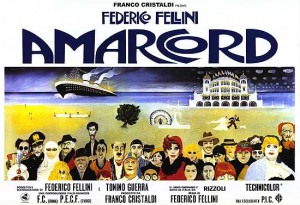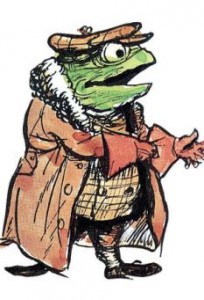If you have not seen the movie Amarcord, by Federico Fellini, I suggest it – if not for the nostalgic setting of prewar Italy – then for the vignetted coming of age of Titta, the young lead. The film opens with the arrival of the puffballs, the small white “manine” announcing the coming of spring. This simple event captures the attention of the townspeople, bringing them to the street to hurrah and parade in joyous celebration. With the arrival of spring is the spirit of renewal, the white – purity, and the sense, simply, of time passing, moving forward.
The changing of seasons is not something I can greet here, in Paris, so easily, so markedly as in the Midwest. There, cornshocks rustle in a dry wind (that same wind which brings in, year after year, the puffballs), forest gleam in passionate shades, as families decorate for those wonderful holidays: Halloween, Thanksgiving, and Christmas. Here, alas, the city is self-contained, the onset of fall marked by temporary death in the rare inner-city vegetation, while October and November greet me with torrents of rain and slowly cooling temperatures.
Yet the city moves on, progresses as usual, seems even to thrive on the effrontery of the seasons. The city is business – while American hands trade lattés for their holiday counterparts, the Parisian continues to consume that potent drug (upon which the city endlessly runs) expresso. There is, I have noted, a continuity, an unparalleled movement that exists here, that feeds on the activity of Parisians, in the change of money, food, products, in the rush of the metro, the larger Grandes Lignes, and the continual activity of Charles de Gaulle International.
It is this movement that keeps the city alive. Parisians are too busy living, truly living to stop and enjoy a calmer pace. For who lives so precarious, so vivant a life as the young Parisian? Overcome with desire for an ever-changing adventure like beloved Mr. Toad of Graham’s Wind in the Willows. Each new day, new fad, new acquaintance seizes hold of the mind and holds sway until the night of that day fades into the next – the mind effaced, open now to new horizons.
So life goes, the Parisian (really, not so different from the New Yorker, the Chicagoan, you see) living life from link to link, chain stretched endlessly on the horizon, waiting to *snap* like a firecracker. And so Keroauc describes such folk, like On The Road‘s anti-hero Dean Moriarty: “. . . the mad ones, the ones who are mad to live, mad to talk, mad to be saved, desirous of everything at the same time, the ones that never yawn or say a commonplace thing, but burn, burn, burn like fabulous yellow roman candles exploding like spiders across the stars and in the middle you see the blue centerlight pop and everybody goes “Awww!”
And again, the little white puffballs, drifting into town to wash again the minds and hearts with a new season . . .


Leave a Reply